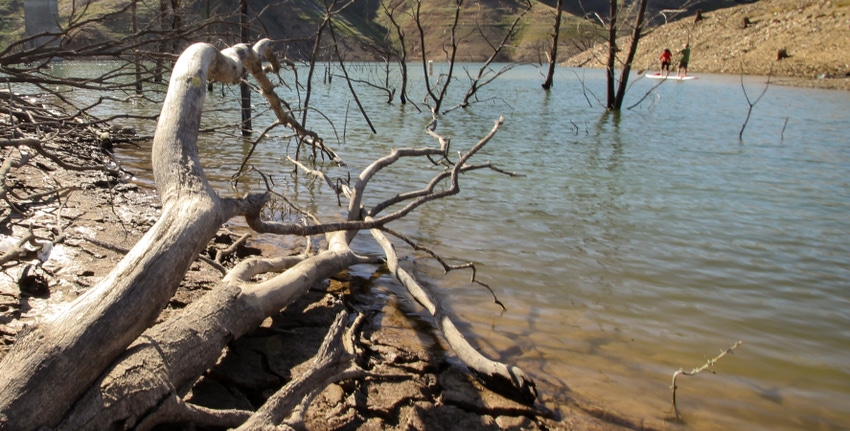
Buried in an hours-long State Water Resources Control Board hearing recently was the admission that California experts overestimated the spring inflow by 800,000-acre feet. Put another way, the state banked on water that never came.
That admission, coupled with public policy that favors environmental uses of water over human needs, led to California's recent curtailment of the most senior of water rights – a private property right that once had value in California and threatens to ripple far and wide.
Related: Calif. board votes to curtail senior water rights
It's not just the lack of water that will hurt residents in California and the West; the inability to generate electricity from these large reservoirs will cut power supplies across the West. Lake Oroville in Northern California will cease power operations within the coming weeks as the reservoir reaches hydroelectric dead pool status. Lake Powell in northern Arizona is said to be precariously close to hydroelectric dead pool, but officials with the Bureau of Reclamation are trying to move upper Colorado River basin water into the reservoir to buy them some time.
This "kick-the-can" policy by state and federal water managers may bite them in the can, but it will hurt many more as water and power supplies dwindle. The cyclical nature of drought can no longer be relied upon to be just somewhat bad for a year or two, followed by years of plenty. Even the Bureau of Reclamation admits that it misjudged Colorado River system supplies, leading to concerns of critical conditions.
Projections that lakes may teeter on record low levels cannot be trusted with such admissions from California and the Bureau of Reclamation.
Related: ‘This should have been discussed six months ago’
Residents in the West will see catastrophic water shortages, followed by unnecessary power shortages because states like California opted away from proven technology capable of keeping the lights on even in the most egregious of summer heat.
A California water board staffer compared the 1977 drought to today, predicting that Shasta Lake will come within 300,000-acre feet of its all-time low seen in September 1977. Given the state's track record of projecting water supplies, chances are high that Northern California's three large reservoirs – Shasta, Oroville, and Folsom – will all reach "dead pool" status by October, meaning they will be useless puddles until rain and snow refill their basins.
California's failures are hurting neighboring states. Arizona and Nevada, two states that rely heavily upon the Colorado River, will see their allocations cut next year under Tier 1 restrictions from Lake Mead. Those restrictions have arguably been sped up by California's thirst for Colorado River water. When California cut its promised deliveries from the State Water Project earlier this year, Southern California simply went after its Colorado River allocation, quickly pulling Lake Mead to its lowest status since Hoover Dam was built.
California's failed public policy on water led to this catastrophe. The public deserves answers from policy leaders and lawmakers who nearly every election cycle beg for billions of borrowed dollars to fix the problems they created.
About the Author(s)
You May Also Like






